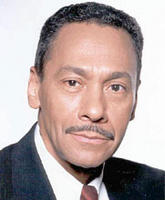by James F. Haggerty
PRSA's pursuit of an anonymous staffer who criticized PRSA chief operating officer Catherine Bolton in an e-mail to the PRSA board, raises a remarkable number of legal, policy and PR issues.
According to details on the O'Dwyer's website, PRSA filed a petition against Time Warner's Road Runner Internet service for the release of information regarding the e-mailer's identity. The mystery e-mailer, called "John Doe" in court papers, filed a motion to stop PRSA from learning his name. On May 27, 2005, Bolton defeated his motion; the PRSA board, however, did not.
The reason for all this commotion? PRSA and Bolton have stated they intend to sue the mystery e-mailer for defamation, and they want to know who he (or she) is.
Defamation claims can be extraordinarily difficult to bring, even in the best of circumstances. But in this case, especially so. Consider, for example: (1) the likelihood that such a communication would be considered "opinion" protected by the First Amendment; and (2) the likelihood that PRSA and Bolton would most certainly qualify as "limited-issue public figures," for whom not mere negligence, but "actual malice" is the standard.
Also, while the element of damages may not prevent Bolton from stating a claim, it does directly relate to any possible award if her claim is successful. And what about the employment law implications of the fact that John Doe is a PRSA employee?
But let's back up. For PR counselors to understand exactly what is going on, some background on the law of defamation is in order.
Defamation is one of those terms that gets thrown around quite a bit in common parlance, with little understanding of the actual legal meaning. So let's start with the basics. Not incidentally, with all the sensitive information we disseminate as PR professionals, it doesn't hurt for all of us to understand defamation law on a more general basis (and tip for those plying their trade at PR firms: check those indemnity clauses!).
First, consider the difference between defamation, libel and slander, terms that are often thrown around interchangeably.
Defamation is a general term for libel and slander. Slander is spoken; libel is written (although libel includes, oddly enough, television and radio broadcasts, where, it is argued, a written transcript of the offending remarks can be made).
Defamation has historically been defined as the injury to reputation by words that tend to expose one to public hatred, shame, contempt or disgrace, or, to quote a seminal 1933 New York case against the New York Evening Journal, "to induce an evil opinion of one in the minds of right thinking persons and to deprive one of their confidence." The loss of reputation need only be with a small section of the community‹or as famed tort scholar Dean William L. Prosser put it, a defamatory statement must "tend to prejudice the subject in the eyes of a substantial and respectable minority of the community."
So that's defamation. But the real question here is: when is it actionable (a "tort") in the eyes of the law? For that, the statement must have four elements under New York law.
These elements are: (1) a false statement, (2) publication to a third party, (3) at the very least, negligence on the part of the person sending the message (but in the case of public figures, "actual malice"), and (4) the statement must either cause "special" damages (i.e., verifiable economic damage) or constitute slander or libel per se.
In the PRSA case, thus far special damages have not been alleged, so we must be talking about libel per se. Libel per se is best described as a communication so obvious in its defamation that any fool would understand that there’s going to be damage.
Some words, for example, are defamatory by their plain meaning: "thief," "cheat," or "murderer" come to mind. Such direct disparagements are so obviously defaming by their plain meaning that there can be no dispute as to their effect. Under New York law, however, the communication is taken as a whole when considering whether it is libelous per se. So it's not necessarily the individual words themselves that matter if through the overall intent and meaning it is obvious that the communication would "tend to prejudice the subject in the eyes of a substantial and respectable minority of the community" then it's libel per se.
One other element is important for PR counselors to note: by "published," what is really meant is "disseminated," so, for instance, if a public relations pro issues a defamatory press release to a room full of reporters and spectators (or even to one), it doesn't matter if no media outlet picks up the story. Disseminating the press release to even one person other than the plaintiff, is, in the eyes of the law, publication (as mentioned, in the PRSA's case, since it is not alleged that the offending e-mail went anywhere other than to the PRSA board, the court ruled that there was no publication, thus no defamation claim for the PRSA board).
So does the anonymous email, signed by John Doe as "Catherine Hater," qualify as libel per se as to Bolton? Well, in the May 27th decision, the judge decided that Bolton, at least, had sufficiently stated a cause of action for libel per se, enough to let her proceed in obtaining the information from the Road Runner service that will show who John Doe really is.
But non-lawyers must understand exactly what this means. The fact that Bolton was able to state a claim for defamation does not prove her case.
She would still have to go to trial, present evidence as to all the elements of defamation, and have a judge and jury weigh the law and the facts. What the court in the May 27th decision asked was this: if you assume all of the facts are in the Bolton's favor, could they conceivable make a case for libel? The court ruled "yes" – but that's a long way from proving your case in a court of law. Bolton just cleared the first hurdle – and a low hurdle at that.
Significantly, the PRSA itself did not clear the same hurdle. Since there was no evidence that the offending e-mail went anywhere else than to the board, there was no "publication" of the defaming message.
Now comes the hard part for PRSA and Bolton. They must prove all of the other elements required for a defamation claim. First, they must overcome the question of whether parts of the statement represent "opinion" – an honest expression of fair comment on matters of legitimate public interest (protected by both federal and New York State constitutions).
Then, there's falsity: to the extent the message is factual, it has to be a false communication to be defamation (truth does indeed set you free). Then there's the "public figure" problem. Under New York law, public figures can be two types: an individual who occupies such a position of notoriety that they are a public figure in all circumstances (Russell Crowe, for example), or a "limited issue" public figure – an individual who voluntarily injects him – or herself into public issues and thus becomes a public figure regarding those issues. It will be hard to argue that Ms. Bolton doesn't qualify as a public figure under the latter analysis.
And so, "actual malice" must be proven: that is, John Doe must be shown to have intentionally set out to defame, with malice in his heart‹or at the very least, with a reckless disregard for whether he would defame.
Finally, remember: just because you can sue doesn't mean you should. And that raises several questions, including: what are the real damages here?
How much could PRSA and Ms. Bolton possibly win, compared to the costs, distractions and embarrassment that would flow from exposing PRSA's various warts? And what about the policy implications of a professional nonprofit, dedicated to the public interest and (presumably) the First Amendment, suing to shut down the speech of one of its employees?
Apple Computer, a private company, can do anything within its legal power to control the flow of information, I suppose. But an organization dedicated to communication?
Put it all together, and, in the parlance of modern litigation, you've got the prospect of a very risky lawsuit with only a limited return on investment.
Smart organizations manage their litigation alternatives by taking into accounts the real costs of legal action. In the final analysis, therefore, perhaps the place for PRSA to repair any damage wrought by the mysterious John Doe is not in a court of law, but in the proverbial "court of public opinion."

 The Energy Policy Act of 2005 was supported by 43% of the Congressional Black Caucus, including Senator Barack Obama. The CBC voted 17 Yeas to 22 Nays, while the entire House of Representatives approved the bill on a vote of 275 Yeas to 156 Nays. The Senate voted 74 to 26 in approving the bill. AAEA has been working to get an energy passed for the past four years. (CBC Chair Melvin Watt, left, Senator Obama, right)
The Energy Policy Act of 2005 was supported by 43% of the Congressional Black Caucus, including Senator Barack Obama. The CBC voted 17 Yeas to 22 Nays, while the entire House of Representatives approved the bill on a vote of 275 Yeas to 156 Nays. The Senate voted 74 to 26 in approving the bill. AAEA has been working to get an energy passed for the past four years. (CBC Chair Melvin Watt, left, Senator Obama, right)










